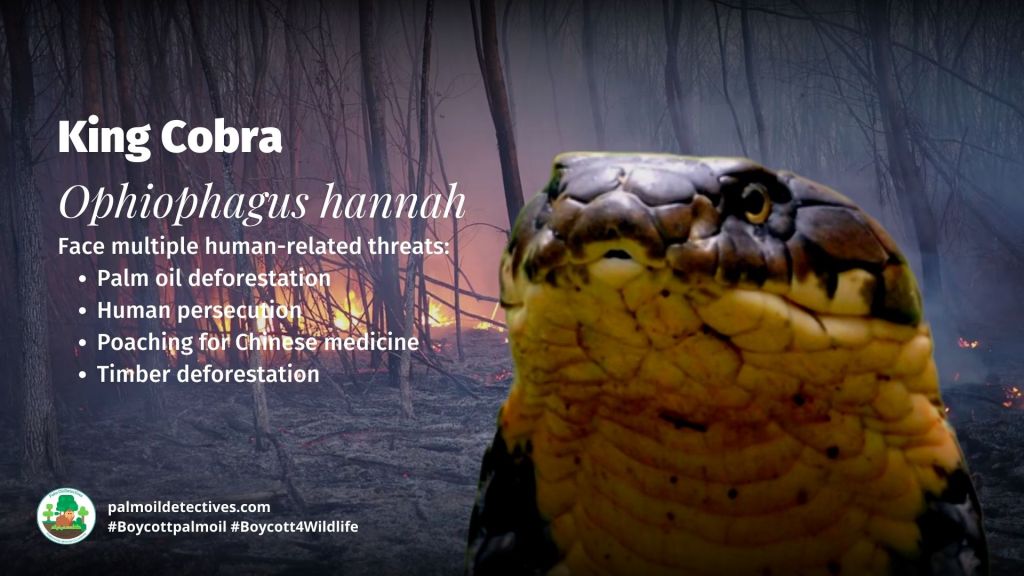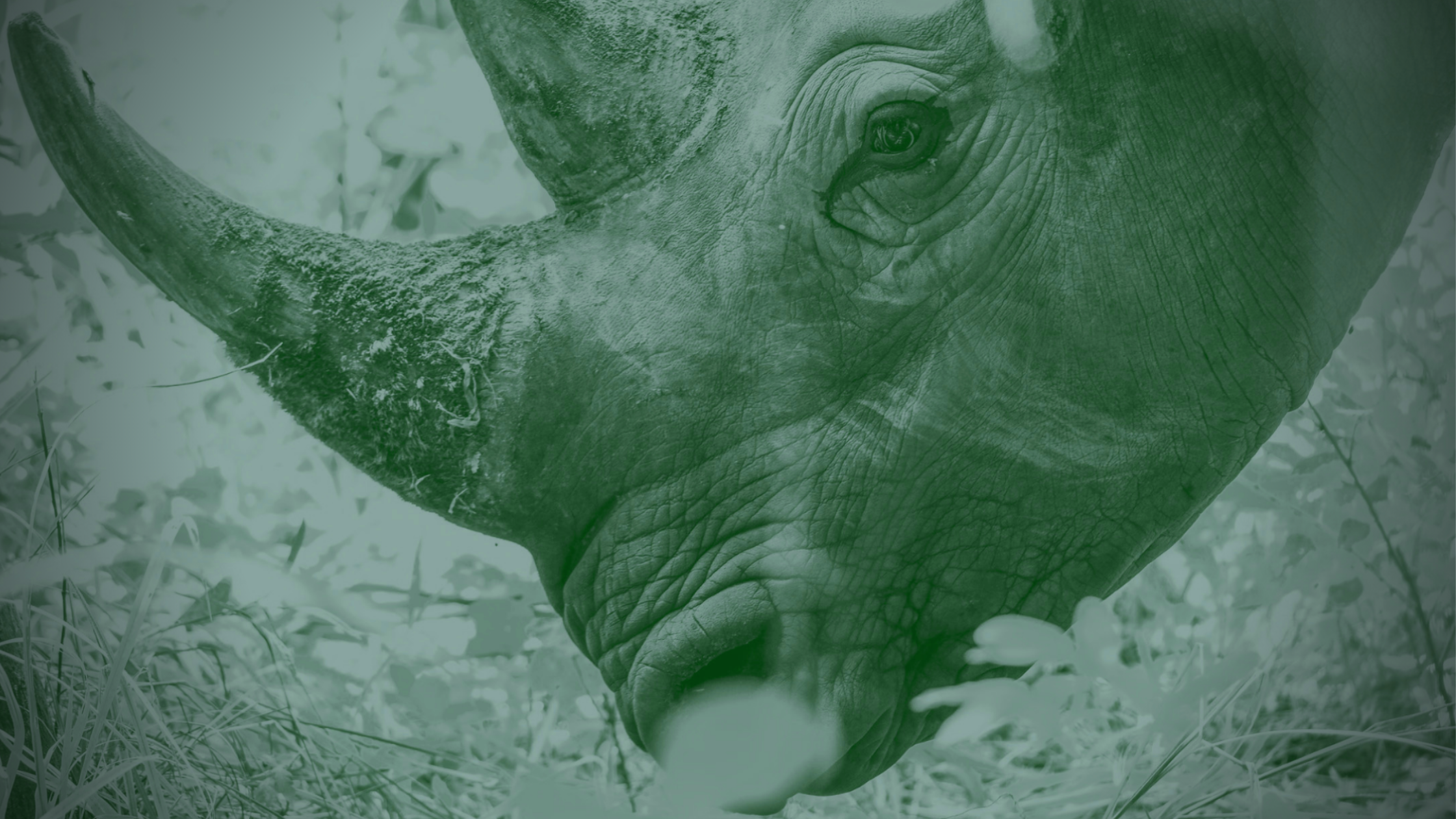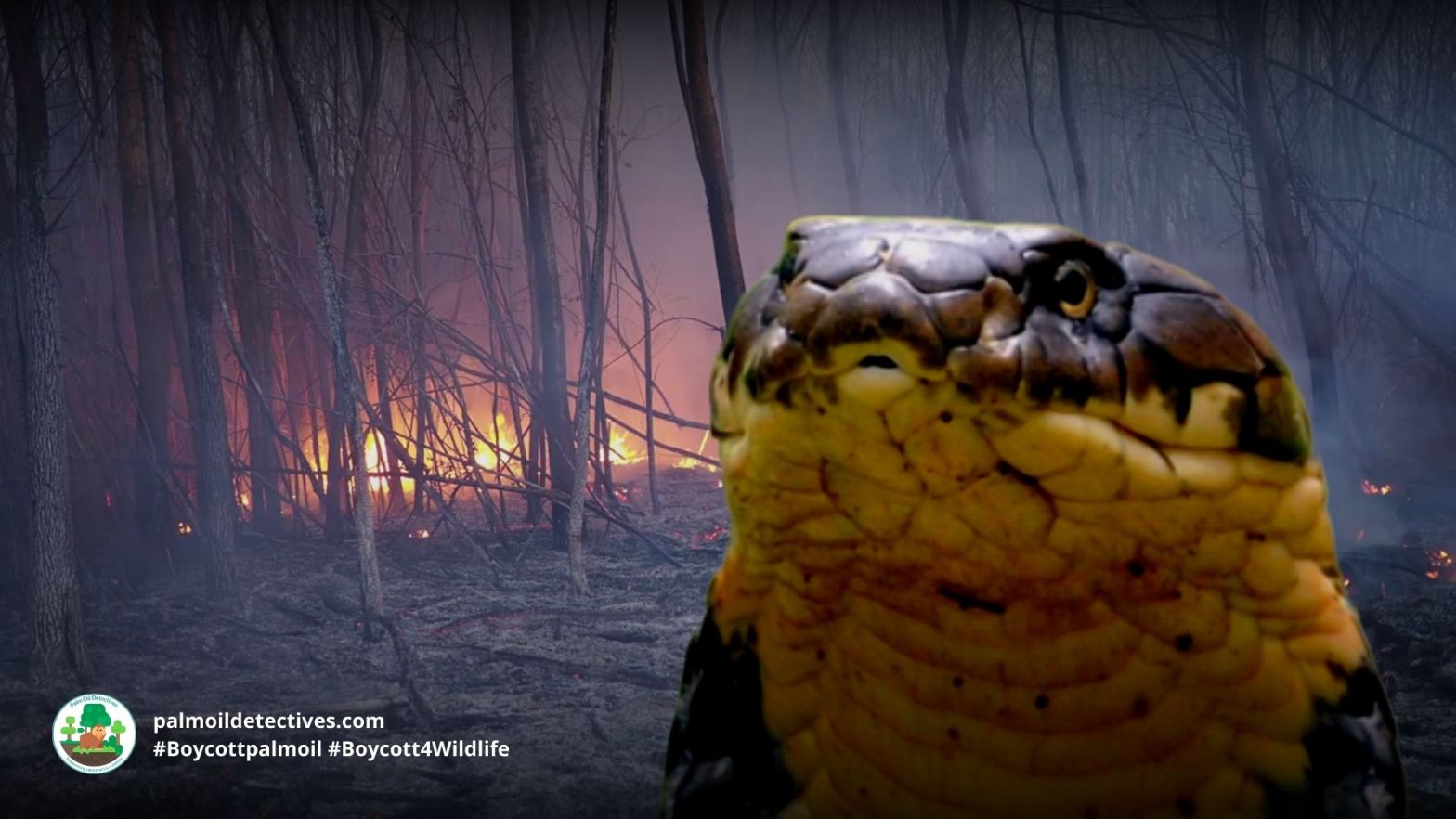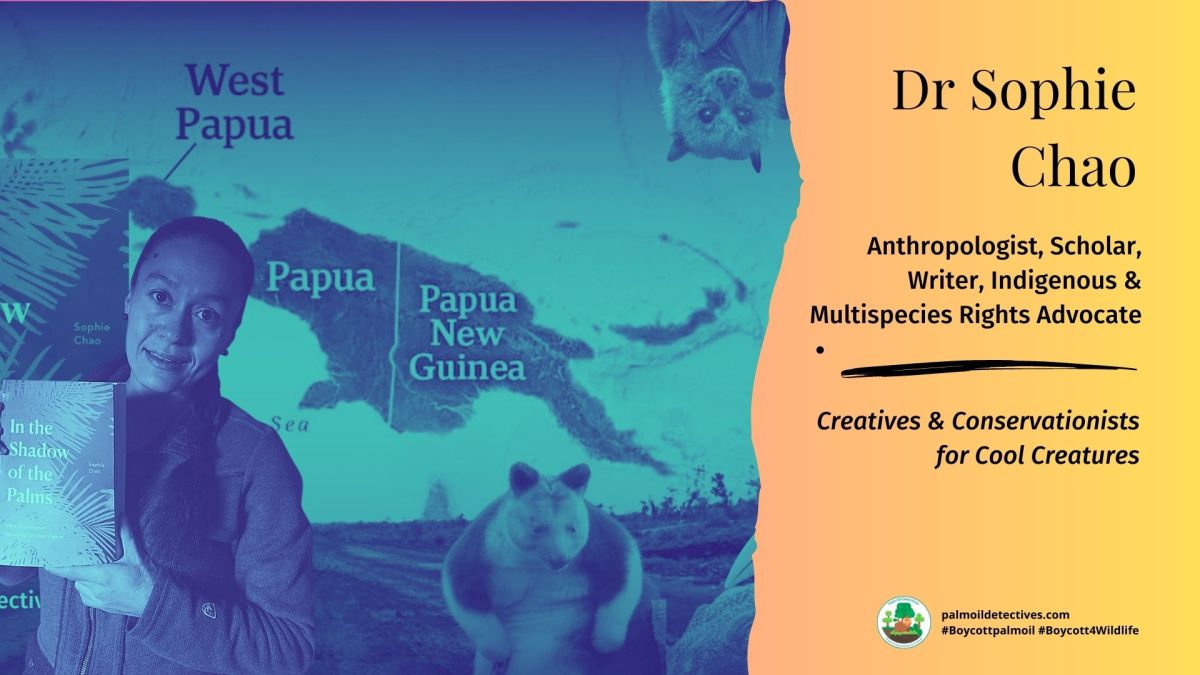King Cobra Ophiophagus hannah
Vulnerable
Malaysia, Cambodia, Thailand, Laos, Vietnam, Bangladesh, India
The King Cobra is the serpentine king of the jungle in #SEAsia, they are vulnerable due to #deforestation for #palmoil and other crops and human persecution. Protect them and #Boycottpalmoil #Boycott4Wildlife
Tweet
Known as the serpentine king of the jungle in South East Asia, the King Cobra lives in many different environments, including pristine forests, degraded forests, mangroves, swamps and woodlands. The main threats that they face are as a result of palm oil deforestation and other agricultural expansion throughout their range. Help them and #Boycottpalmoil #Boycott4Wildlife
The King Cobra lives in a variety of habitats, primarily in pristine forests, but they can also be found in degraded forest, mangrove swamps and even agricultural areas with remnants of woodland.
This species is threatened by destruction of habitat due to logging and agricultural expansion, as Southeast Asia is experiencing one of the highest rates of deforestation in the tropics (Sodhi et al. 2009) and this species appears to be most abundant in forested habitats. This species is harvested for skin, food, and especially medicinal purposes in China. They are heavily harvested for the medicinal trade in many parts of their range, particularly Viet Nam, Lao PDR, Cambodia and Myanmar, both for domestic purposes and for export to China.
They have also been found swimming in rivers in non-forested land and probably occurs in palm oil plantations (R. Inger pers. comm. 2010), however it is not yet clear whether oil palm plantations can support viable populations of this species (M. Auliya pers. Comm. 2011). This species is threatened by destruction of habitat due to logging and agricultural expansion

Further Information

Stuart, B., Wogan, G., Grismer, L., Auliya, M., Inger, R.F., Lilley, R., Chan-Ard, T., Thy, N., Nguyen, T.Q., Srinivasulu, C. & Jelić, D. 2012. Ophiophagus hannah. The IUCN Red List of Threatened Species 2012: e.T177540A1491874. https://dx.doi.org/10.2305/IUCN.UK.2012-1.RLTS.T177540A1491874.en. Downloaded on 16 February 2021.
King Cobra: Round Glass Sustain


How can I help the #Boycott4Wildlife?
Contribute in five ways
1. Join the #Boycott4Wildlife on social media and subscribe to stay in the loop: Share posts from this website to your own network on Twitter, Mastadon, Instagram, Facebook and Youtube using the hashtags #Boycottpalmoil #Boycott4Wildlife.
2. Contribute stories: Academics, conservationists, scientists, indigenous rights advocates and animal rights advocates working to expose the corruption of the palm oil industry or to save animals can contribute stories to the website.
3. Supermarket sleuthing: Next time you’re in the supermarket, take photos of products containing palm oil. Share these to social media along with the hashtags to call out the greenwashing and ecocide of the brands who use palm oil. You can also take photos of palm oil free products and congratulate brands when they go palm oil free.
4. Take to the streets: Get in touch with Palm Oil Detectives to find out more.
5. Donate: Make a one-off or monthly donation to Palm Oil Detectives as a way of saying thank you and to help pay for ongoing running costs of the website and social media campaigns. Donate here







